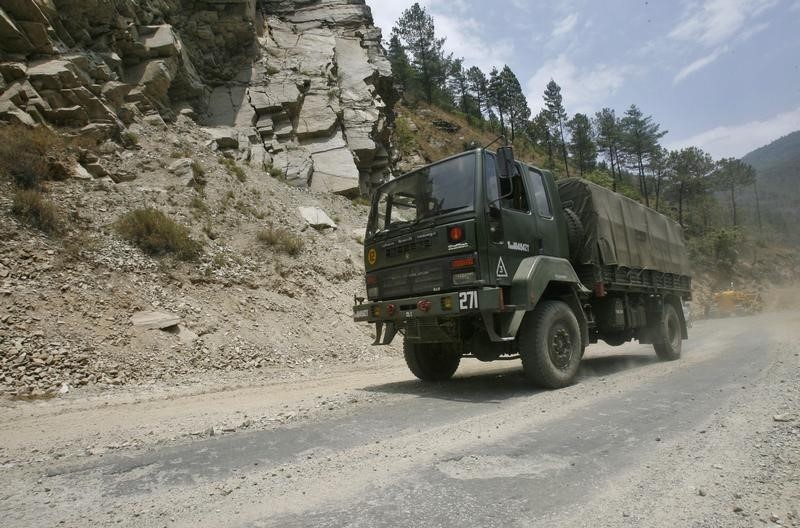By Rupam Jain Nair
NEW DELHI (Reuters) - India has granted the army shoot-to-kill powers to fight militants in a wide swathe of the far-flung northeastern state of Arunchal Pradesh, bordering Tibet and claimed by China.
The army was already exercising "special powers" in other northeastern states, where various separatist, leftist and tribal rebels are waging insurgencies, but Arunachal Pradesh has been relatively peaceful until recently.
Last month, three soldiers were killed in an ambush in the state that the army blamed on militants from the Naga tribe.
Rebel groups have set up camps across the state, the home ministry said in its "special powers" order, and use it as a base to launch attacks in the neighbouring state of Assam, which has been hardest hit by an upsurge in militancy in the region.
The order, obtained by Reuters and dated March 27, extended the controversial Armed Forces Special Powers Act (AFSPA) to all districts of Arunchal Pradesh that border Assam - a measure that will affect most of the state's 1.3 million people.
"We were compelled to expand the jurisdiction of AFSPA due to a drastic rise in violence in the north-east region. The separatist groups have been targeting the police and security officials," said a senior home ministry official in New Delhi.
The northeastern states, are connected to the rest of the country by a thin sliver of land, and contain diverse ethnic groups, some with links to neighbouring Myanmar.
Militant activity surged in the states, known as "the Seven Sisters", last year with 465 deaths reported, up from 252 a year earlier, according to the South Asian Terrorism Portal, a think-tank that tracks militancy.
In Assam, the death toll tripled to 305, making 2014 the state's worst year since 2009. Only nine people were killed last year in Arunchal Pradesh.
The special powers for "disturbed areas" was first used in 1958 to control Naga separatists, and was subsequently extended to most of the north-east. It has been in force in the disputed region of Kashmir since 1990.
Human rights groups blame AFSPA for a host of extra-judicial killings and arbitrary detentions by security forces. On Wednesday, lawmakers in Kashmir called for it to be repealed.
Citizens from the rest of India require a permit to visit Arunchal Pradesh, which is the size of Austria, and heavily militarised along parts of border with China.

China has not responded to the new measure, but Beijing has become increasingly vocal in recent years about India's control of the region it calls South Tibet.